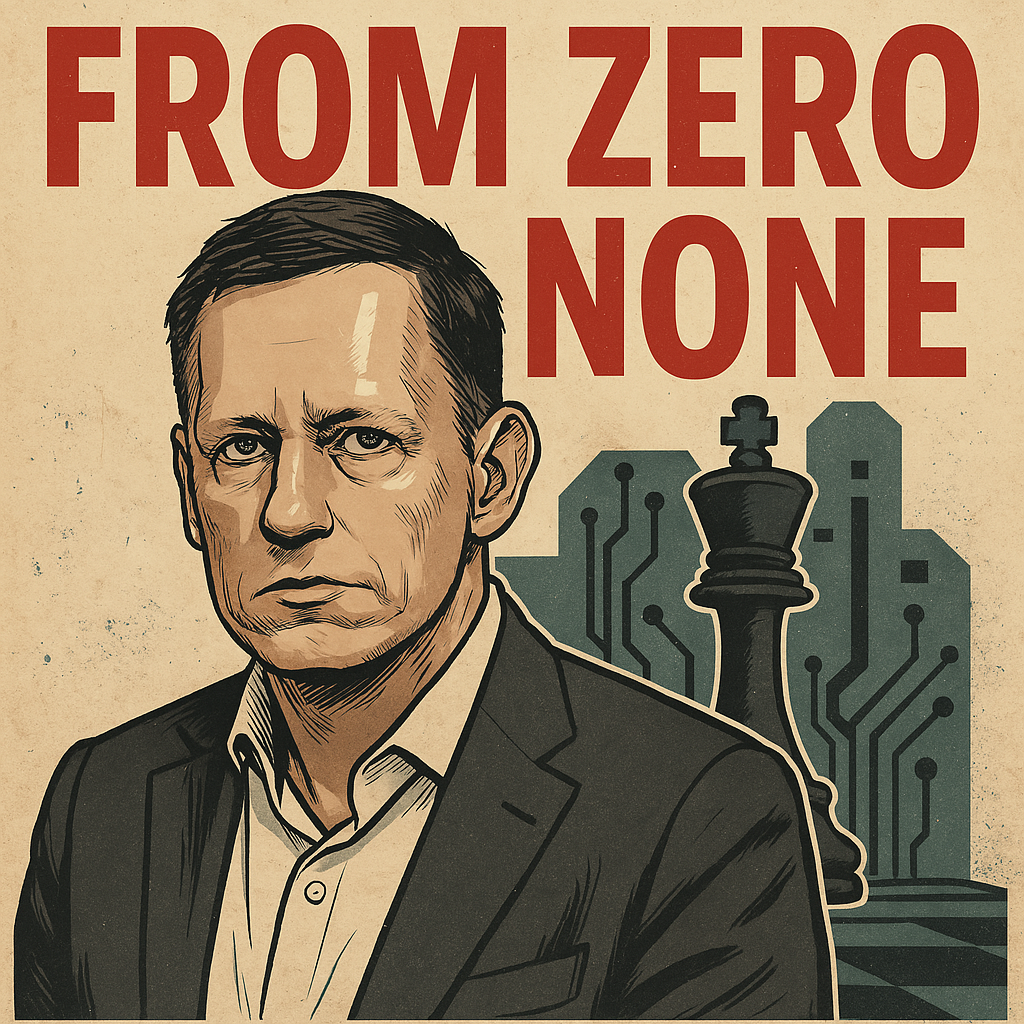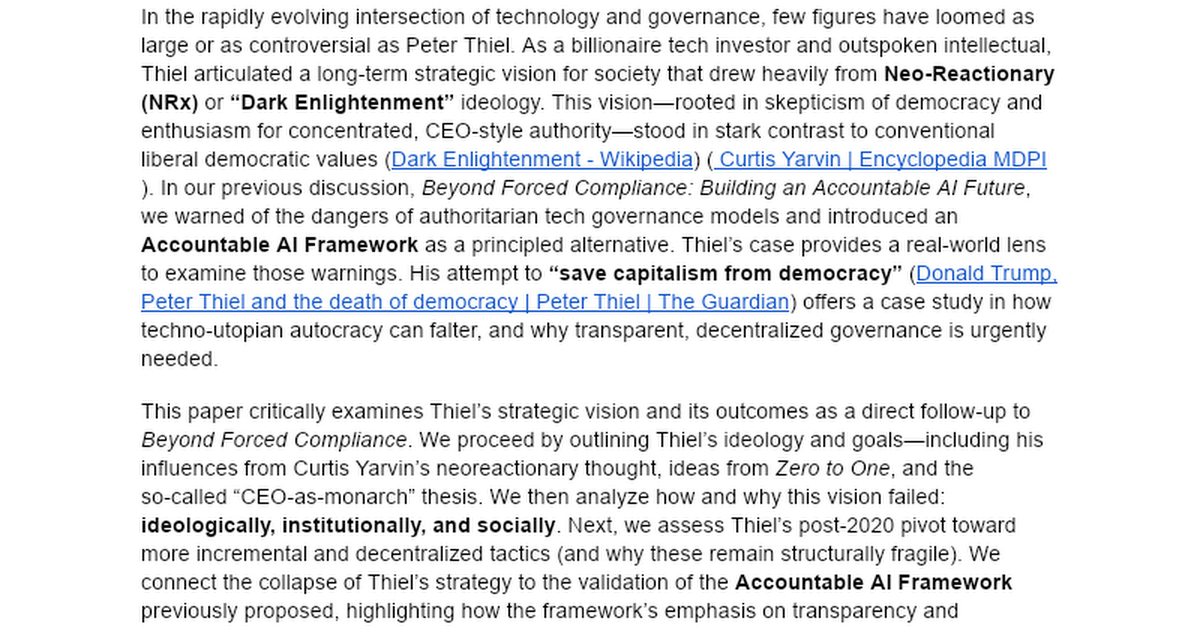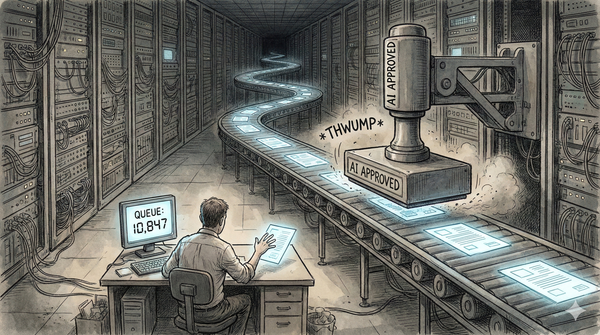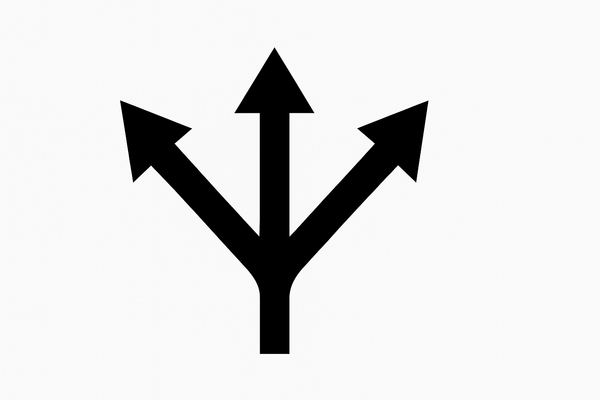From Zero To None: The Rise and Fall of Peter Thiel’s Techno-Political Dream

How the visionary behind Silicon Valley's boldest bets went from reshaping society to revealing the limits of authoritarian innovation.
Peter Thiel’s career is defined by big bets: PayPal, Palantir, early investments in Facebook. But beneath these headline successes lies a more ambitious—and troubling—project: Thiel’s pursuit of a techno-political future that rejects democracy, favors authoritarian efficiency, and places the reins of society firmly in the hands of technocratic elites.
Initially inspired by the radical ideologies of the neo-reactionary movement (NRx) and Curtis Yarvin’s Dark Enlightenment, Thiel envisioned a society ruled by a “CEO Monarch” rather than elected leaders. His investments—from seasteading ventures to secretive data-mining companies—weren’t simply about innovation. They were about creating a new political reality, one where monopolistic control wasn’t just economically advantageous, but politically transformative.
Yet today, Thiel’s grand vision lies in tatters. The ideological dream of a techno-authoritarian utopia has collided spectacularly with reality. From stalled charter cities in Honduras to the bureaucratic implosions of Trump-era governance, Thiel’s experiments have demonstrated an ironic truth: the very strategies meant to bypass messy democratic institutions have instead reaffirmed their resilience.
So what went wrong? And more importantly—what can we learn?
Strategic Ambiguity: The Hidden Playbook
Thiel’s playbook hinged on strategic ambiguity—intentionally vague rules, hidden decision-making processes, and stealthy consolidation of power. It’s no accident that Thiel-backed startups frequently adopted opaque structures, or that Thiel-aligned politicians promoted quiet deregulation and covert control of state institutions. Ambiguity was their secret weapon, enabling rapid and unchecked action while avoiding democratic oversight.
But ambiguity, it turns out, is fragile. It depends on public ignorance and institutional complicity. As soon as people catch on, the spell breaks. In Thiel’s case, once whistleblowers and watchdogs exposed the inner workings of operations like Palantir’s controversial ICE contracts or the Trump administration’s abrupt and opaque policy shifts, public backlash was swift—and devastating.
Musk, Trump, and DOGE: The Failed Experiment
No episode illustrates Thiel’s failure clearer than Elon Musk’s notorious DOGE initiative (Department of Government Efficiency). Conceived as a Thiel-inspired bureaucratic reform project, DOGE rapidly evolved into an authoritarian tech nightmare—locking federal employees out of critical systems, firing thousands via opaque AI-driven directives, and sparking immediate institutional chaos.
Musk’s DOGE embodied everything Thiel advocated: rapid, decisive action powered by proprietary AI systems, with minimal transparency. But it quickly became DOGE’s undoing. The opaque AI processes caused bureaucratic paralysis rather than efficiency; citizens were alarmed at the sudden lack of accountability, and DOGE became a powerful symbol of anti-democratic excess. Instead of cementing technocratic dominance, DOGE triggered fierce resistance from courts, media, and even internal whistleblowers—collapsing spectacularly under scrutiny.
From Zero To None: Why Thiel’s Vision Collapsed
At the heart of Thiel’s failure lies a fundamental misunderstanding: societies, unlike startups, don’t scale efficiently under unilateral control. His libertarian idealism about “zero-to-one” innovation—a clean, decisive leap from nothingness to monopoly dominance—proved ill-suited for the messy, pluralistic reality of human governance. Human societies aren’t mere economic experiments; they’re organic, resistant to coercion, and inherently resilient to attempts at radical control.
Moreover, Thiel vastly underestimated the adaptability of democratic institutions. The very bureaucratic inertia he derided became a source of stability under assault. He misunderstood transparency and accountability as liabilities, when they are, in fact, essential adaptive features of democratic societies.
The Quiet Pivot: From Monopoly to Cultural Capture
But Thiel has not disappeared quietly into Silicon Valley history. Instead, he’s pivoted. Recognizing his vision’s limitations, Thiel and his allies now champion subtler strategies: decentralized technologies that obscure control, incremental policy shifts that evade headlines, and long-term cultural infiltration via media, academia, and think tanks. Today’s Thiel is less interested in grand bureaucratic overhauls and more in quietly reshaping culture—creating conditions for a future where authoritarianism might return, this time disguised as consensus.
This quieter approach might lack the drama of Musk’s DOGE or Yarvin’s flamboyant calls for monarchism. But in some ways, it’s more insidious. It demands renewed vigilance, and a clear strategy for countering this subtler playbook.
Accountability as Kryptonite: How to Fight Back
Fortunately, Thiel’s pivot points precisely to the solution: clarity and accountability. Transparent governance structures, robust oversight mechanisms, independent audits, and strong whistleblower protections aren’t just good policies—they’re essential defenses against authoritarian creep.
Accountability is kryptonite to strategic ambiguity. Thiel’s most effective tools collapse when exposed to scrutiny. Musk’s DOGE crumbled the moment oversight kicked in. Palantir faced backlash when transparency activists revealed its practices. Thiel’s failed charter cities faltered as soon as their opaque governance was publicly questioned.
The way forward, then, is clear: doubling down on explicit accountability measures like Override Logs, structured appeals processes, iterative reality tracking, and public transparency mandates. These aren’t theoretical niceties; they're practical tools proven effective in defanging Thiel-style authoritarian governance.
From Accountability to Action
We’ve seen how the dream of techno-authoritarian governance ends: messy failure, public outrage, and institutional resilience. Thiel’s experiments have inadvertently provided a blueprint—not for dominance, but for democratic renewal.
Today, as AI continues reshaping society, Thiel’s failures should serve as a cautionary tale—and a call to action. Rather than passively accepting top-down tech dominance, we have an opportunity to build something better: accountable AI systems, transparency-driven governance, and institutions designed explicitly to resist authoritarian capture.
This is the real lesson of Thiel’s rise and fall—from zero to none. The future doesn’t belong to opaque power-grabs or quiet authoritarian pivots. It belongs to clarity, accountability, and democratic innovation.
To explore in-depth how Thiel’s vision unraveled and learn more about building robust accountability into technology governance, read our full detailed analysis here:
[From Neo-Reaction to Accountability: The Rise and Fall of Peter Thiel’s Techno-Political Vision (Full Academic Paper)]






